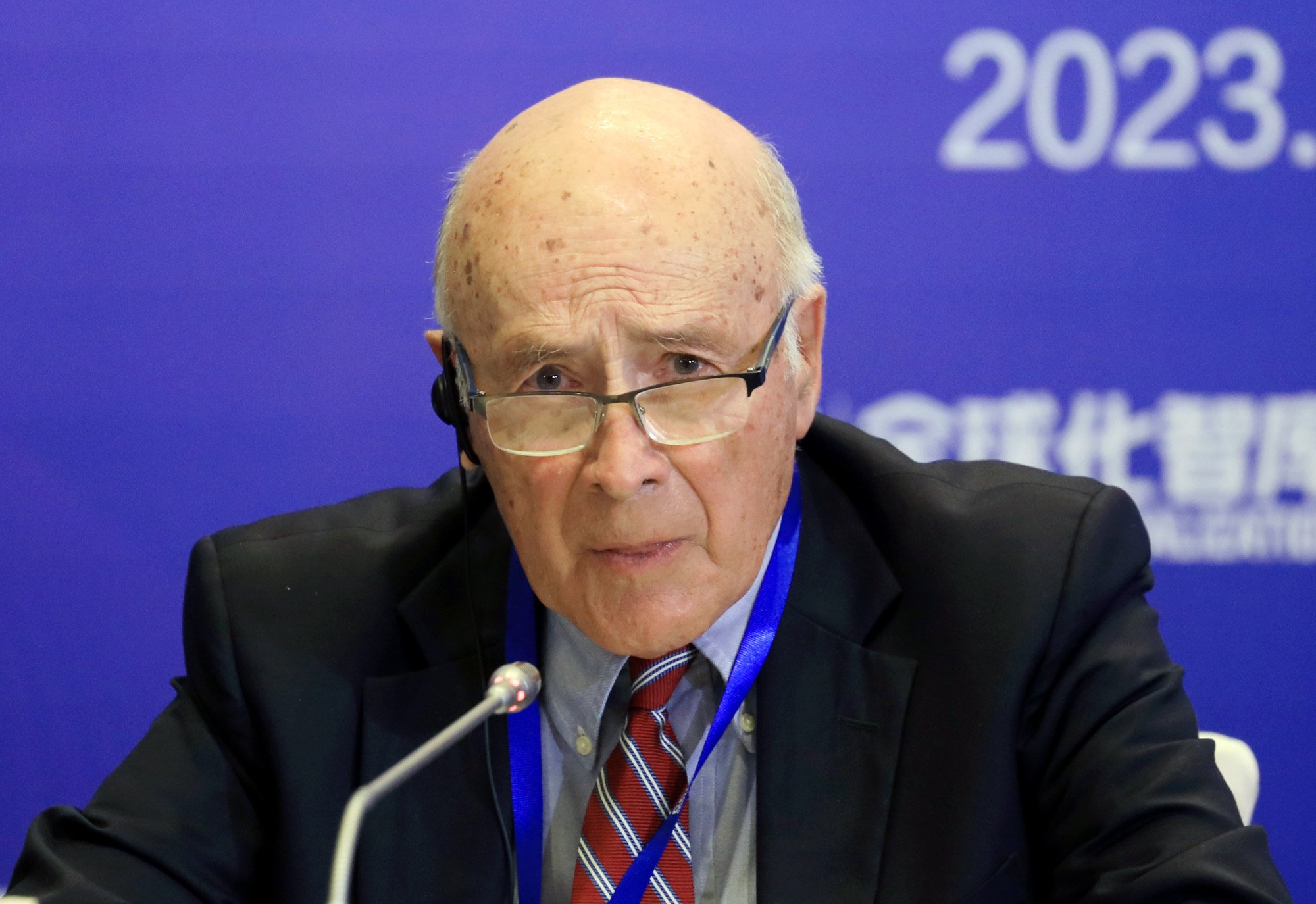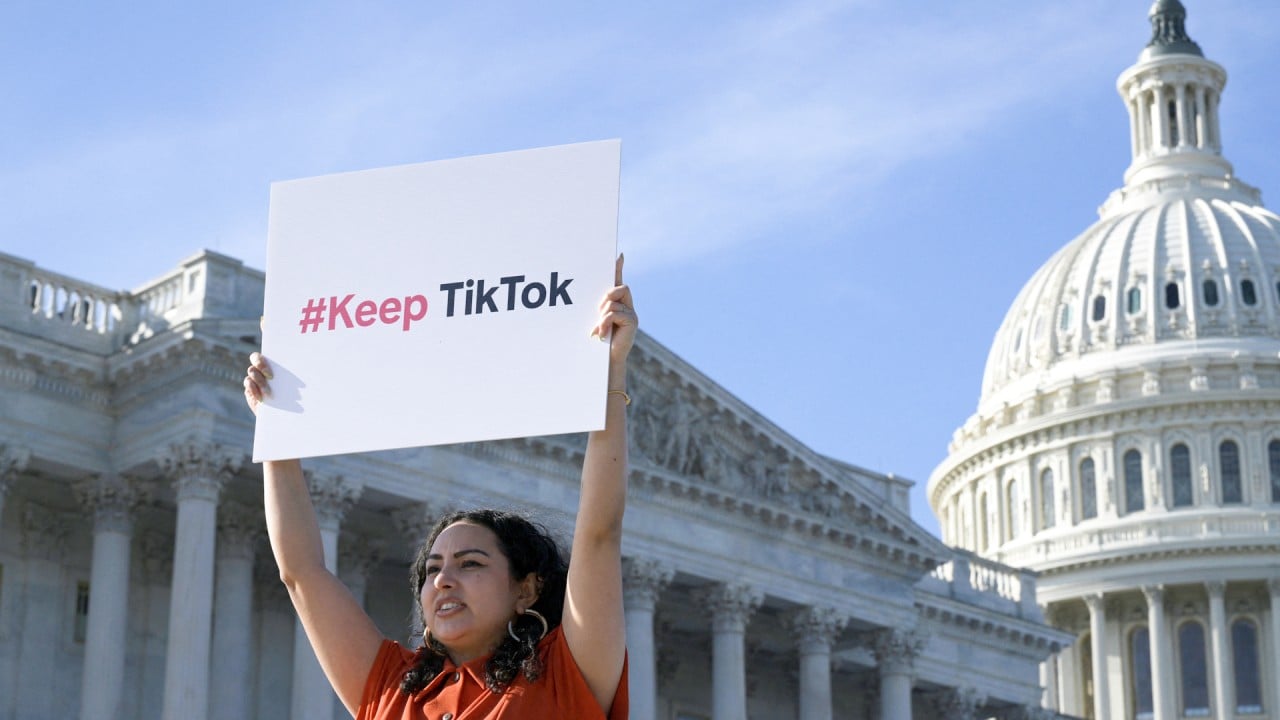‘Very bad idea’: US-China full-scale trade war unlikely but soft-power gap will persist, top scholar says
The answer to the declining workforce is technology and productivity to replace workers. But if you look at the statistics, China’s total factory productivity has been going down, not up. And then if you ask where we get the new technology, most people would say it comes mostly from private entrepreneurs.

But instead the policy recently has been to encourage state-owned enterprises more than private enterprises. So those are three trends which I think make it unlikely that China will return to the high levels of growth that it had in the past.
And when you talk about how this will affect the China competition, there are some people in Washington who exaggerate the China threat. I think in fact, we should not exaggerate the China threat, and if you look at the economic prospects that I describe, that would be my reasoning.
Some scholars have predicted the Chinese economy might surpass the US in certain years. From what I’ve heard from you, that would be an unlikely scenario.
I think it’s unlikely. I mean it used to be conventional wisdom that China would pass the US in total size of the GDP at [current] rates by 2030. I would take a bet that that does not happen.
China has been promoting the idea of new production forces, which means developing new technologies and training as much talent as possible for the new tech sector [as a driver for economic growth]. Do you think it is achievable, or will there be a bottleneck if China sticks to its policy to prioritise the state sector?
China has done well in some technologies and some state-owned enterprises are quite good at technology. Generally speaking though, when you have a state-owned enterprise, it tends to be responsive to politics rather than fully exploring the options in technology.
Entrepreneurs are more likely to explore things that are not obvious. So China will make progress in technology. I think it would make more progress if it gave more free rein to private entrepreneurs.
We mentioned briefly about the possibility of armed conflicts in the region. There are a lot of things going on in the South China Sea for the time being, such as the stand-off between Chinese and Philippine ships. How do you assess the risk of armed conflicts in the South China Sea?
I don’t think it’s high risk. I think both sides want to avoid armed conflict, but sometimes in relations between states and history, people miscalculate and the Philippines does have an alliance with the US, and you can conceive of a situation where if China treats the Philippines too badly, the US tries to help it and that one thing may lead to another that neither China nor the US want or expect but they get themselves into deeper water than they originally intend. So, I don’t expect a conflict in the South China Sea, but I don’t rule it out either.
On Taiwan, some scholars have predicted there will be a war. They believe Beijing may invade Taiwan in certain years. But many Chinese scholars said that is not possible unless Taiwan declares independence. What is your assessment?
I think it’s very often cited in Washington that President Xi would like to have the PLA ready to be able to take over Taiwan by 2027. I don’t know whether that is what he thinks or not. But that is often cited in Washington, which makes a lot of people talk about providing defences to protect Taiwan from a military takeover.
I don’t personally think that is likely. I think we saw in the failure of Putin’s ability to invade Ukraine and take over Ukraine quickly a lesson, which is that a big land army cannot do it, then amphibious invasion over a hundred miles of sea is going to have a very hard time.
China will not fall into ‘trap’ of war in Taiwan Strait: Cui Tiankai
So I don’t think that the prospects of a military conflict are as high as some people in Washington think. On the other hand, I think it is very important that the United States maintains its adherence to the one-China policy and the way the United States interprets the one-China policy is no de jure independence for Taiwan and no use of force.
That has worked for 70 some years and I think it can continue to work, which means that as Nixon and Mao put it: Chinese people on two sides of the Taiwan Strait will have to work out their relationship. If we adhere to that policy then I don’t think there will be a war.
China has made it clear that it wants to challenge what it calls the “US hegemony”, which refers to the post-war world order led by the US. China has tried to come up with alternative global structures and economic blocs such as Brics, the SCO and Belt and Road Initiative. It has also reached a lot of currency swap agreements in settling trade deals. Do you think these moves will pose a challenge to the US and the post-war world order?
I don’t think it will succeed in terms of replacing the dollar, for example, as a key reserve currency because the dollar is about two-thirds of the holdings of governments in reserve. A reserve currency depends upon deep and flexible capital markets convertibility and the rule of law. And China is not willing to go that far soon. So yes, China will have more clearing of trade, and the renminbi will have more interactions with the countries you mentioned, but I don’t think it’s going to overturn the post-1945 world order.
China has been trying hard to promote the so-called e-yuan, which is a digital currency under the control of the government. A lot of people believe China is trying to bypass the United States. And also, when things go wrong, the US cannot sanction China the way it sanctioned Russia by banning the use of SWIFT. Do you think the development of digital currency will succeed in challenging the US dollar?
When you look at the role of the dollar or any currency, it has different functions. One function is a payment to clear trading accounts. And so the digital one would be useful for that. But the other value, or important role of currency, is a store of value: how you hold reserves, how your banking system is organised, and the digital yuan is not going to escape the problems I mentioned earlier about the reserve currency. So it will have some effect, but it will not be a total overthrow of the dollar.
You are a supporter of free trade, but you also mentioned we can coerce through economic means. What do you think about US restrictions on Chinese chips and other sanctions, and the talks about divesting TikTok in the US?
On TikTok, I cannot get all that excited about it, but it’s worth noticing the problem of reciprocity. Why should Americans allow TikTok to transfer information about Americans when China does not allow Facebook to operate inside China? So there are a number of people who feel that China’s not playing fair on this and that is the issue of TikTok.
On the issue of chips or high technology, if it relates to security then I think there’s grounds for slowing down the transfer of technology, but it shouldn’t go to the economy as a whole. National security adviser Jake Sullivan called this “putting a high fence around a small yard”. So in the small yard of things of technologies that directly affect security, I think that is justifiable. I think China does the same thing.
So I think the danger I see would be if people think that total trade war would be a good idea. I think that is not a good idea.
In your view, what were the best and worst policies China has made in terms of dealing with the United States in the past 10 years? And vice versa, what were the best and worst China policies made by the US?
I think the biggest mistake that China has made was thinking after the 2009 financial crisis that the US was in decline, and dropping Deng Xiaoping’s foreign policy and replacing it with a more assertive foreign policy. Some people have called it wolf warrior foreign policy. I think that was a bad decision.
But I think we have to realise that in both governments, people make mistakes and do things that are good and do things that are not so good. So I’m afraid we’ll see more good and bad decisions in the future.
Let me follow up on that. Some Chinese scholars said the rise of China’s power was so obvious that China could not lay low and hide it as [it did] during Deng Xiaoping’s time. That is the argument why China has to be more assertive. What’s your comment on that?
What would be your suggestions or recommendations for China to expand its soft power and to become more attractive on the global stage?
I think participating in things which you might call global public goods. Such as I’ve mentioned on climate change or dealing with pandemics and so forth. When you’re associated with producing things that are good for others as well as good for yourself, you become more attractive and it also reduces the degree of tension with other countries.
So I think in a sense increasing your participation in things that produce global public goods is probably the best way to increase soft power. It’s good for China. It’s good for others.
